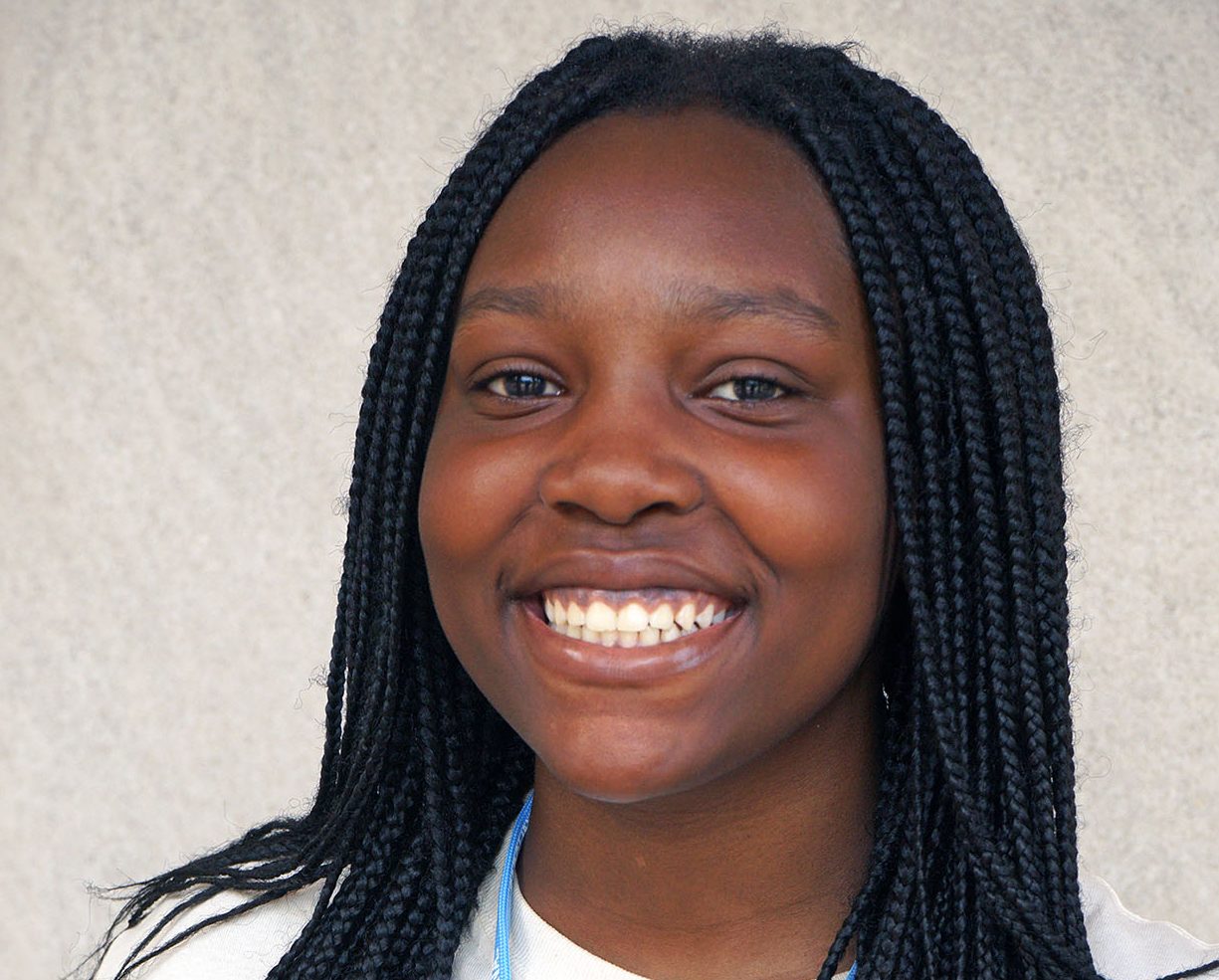
Durham VOICE Teen Editor-in-Chief Nafisa Shah. (Staff photo by Jock Lauterer)
This summer I had the opportunity to attend the Chuck Stone program at UNC-Chapel Hill. The program was started in 2007 for seniors in high school and honors the legacy of Professor Emeritus Charles “Chuck” Stone. Stone was a Tuskegee Airman during World War II and a prominent journalist. The experience taught me more about diversity in the media and the different aspects of journalism.
The camp took place during July and students attending got hands-on experience working with media through graphic design, photography, broadcasting, word usage and grammar to name a few things.
Along with learning more about media, during my time at the camp, I developed friendships and long-term connections that I can use when I apply for colleges, scholarships and just later in life. My first story at the camp was about my roommate Victoria McCoy. McCoy is from Lynchburg, Va. and came to the program to learn about journalism and diversity from a different perspective. This exercise allowed me to think quickly and sharpen up my interview skills but still make a pleasing story for readers and interviewees.
Also during camp, I wrote what I believe to be one my best stories — why HBCU’s (historically black colleges and universities) are so important and why I want to attend one. I would never have thought about writing this story if it wasn’t for the coordinators of the program.
The entire week was all about being exposed to diversity. Ways that we experienced this included when we had to write about people at the camp. We were made up of the entire world — there were blacks, Hispanics, Native Americans, Asians and whites attending.
This alone already showed that some people might have been brought up different because of their skin tone. The point of this camp, I feel, is to show people who want to pursue journalism in the future to have an open mindset because there will always be diversity in America. It’s what America is. Even if you don’t want to pursue journalism in the future, the Chuck Stone camp teaches how to behave appropriately in the work environment and how to talk to give yourself a name.
Something that made me understand the lack of diversity in journalism was when we were talking to professors at UNC. One reminded us during our workshop that mostly white males populate the media industry — especially journalism. This camp made me realize that a lot of women and people of color, including blacks, Asians and other races have just as much talent. It is our job to change this view of people in journalism.
Also, attending the Chuck Stone Program opened my eyes to another career choice I may pursue – public relations. The Director of the Chuck Stone program, Public Relations Professor Livis Freeman, presented on what he teaches at UNC and discussed his own personal PR business.
As Freeman was lecturing and telling us stories about what he does for a living, I thought this could be the perfect job for me. I thought about how I could also have him give me advice on how to better understand and prepare myself for this career.
I really appreciate the opportunity of going to this camp and that coordinators and the director of fhe Chuck Stone program for choosing me to attend. This was a phenomenal program that shows youth the different avenues of journalism and media while still understanding the issue of diversity in the world of a journalist.